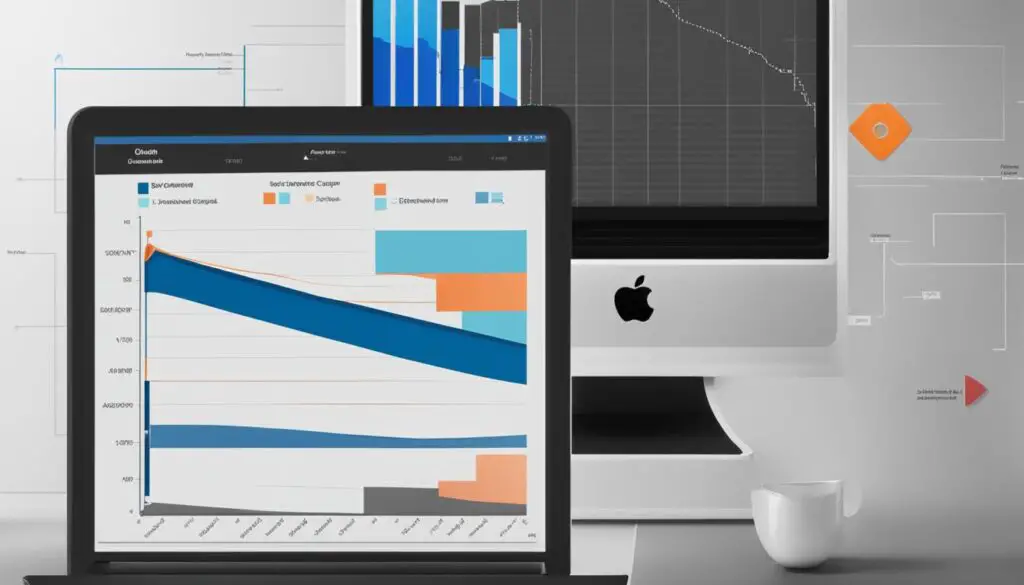Are you passionate about sharing your faith and using technology to make a positive impact in the world? Becoming a digital missionary allows you to combine these two powerful forces to spread the Gospel and engage in online evangelism. In today’s digital age, the internet has become a vast mission field where you can reach people from all walks of life, across borders and time zones.
As a digital missionary, you have the opportunity to utilize various online platforms, connect with communities, and create meaningful digital ministry experiences. Your work as a digital missionary involves not only spreading the digital gospel but also building relationships, offering support, and providing discipleship in the digital realm.
In this article, we will explore the steps and mindset needed to become a digital missionary and make a lasting impact online. From defining the scope of your digital outreach to crafting a digital evangelism strategy and building an online community, we will delve into the essential aspects of this unique calling. We will also discuss the tools, skills, and resources necessary for effective digital ministry and how to evaluate and measure the impact of your online missionary efforts.
Join us on this inspirational journey, where faith and technology intersect to create a digital mission field that can impact lives around the world.
Key Takeaways:
- Becoming a digital missionary allows you to combine technology and faith to spread the Gospel online.
- As a digital missionary, you can reach a global audience and engage in online evangelism.
- Defining the scope of your digital outreach and crafting a digital evangelism strategy are essential steps for effective online ministry.
- Building an online community and leveraging multimedia tools can amplify your message and create a supportive digital fellowship.
- Continuous growth as a digital missionary requires keeping up with trends in church technology and seeking knowledge through resources and training opportunities.
The Calling of a Digital Missionary
As a digital missionary, you are responding to a unique calling to spread the Gospel in the digital realm. This calling goes beyond traditional missionary work and embraces the powerful influence of technology and online platforms for evangelism. Your role as a digital missionary is to harness the digital tools and resources available to reach and impact lives online.

Understanding Your Role in Online Evangelism
Online evangelism offers a platform to share the message of Christ with individuals from various backgrounds, cultures, and geographic locations. As a digital missionary, your role is to be a messenger of hope, conveying the love and grace of Jesus Christ through digital channels. Your purpose is to engage with individuals online, answer their questions, address their concerns, and guide them towards a personal relationship with God.
Embracing the Digital Realm as Your Mission Field
The digital realm is the mission field of the 21st century. It presents endless opportunities for promoting the teachings of Jesus, fostering spiritual growth, and building communities of faith. As a digital missionary, you are called to embrace this virtual mission field, leveraging various online platforms to connect with individuals who may never step foot inside a physical church. Your mission is to meet people where they are and cultivate meaningful relationships that lead to transformed lives.
Defining the Scope of Your Digital Outreach
To effectively carry out your digital outreach as a digital missionary, it is crucial to define the scope of your efforts. This involves identifying your target audience, selecting the most appropriate online platforms, and expanding your reach to a global audience.
1. Defining Your Target Audience:
Start by understanding who you want to reach with your digital ministry. Consider demographics such as age, location, and interests. This information will help you tailor your content and engage effectively with your target audience.
2. Choosing the Right Online Platforms:
Research and identify the online platforms where your target audience is most active. Whether it’s social media platforms like Facebook or Instagram, professional networks like LinkedIn, or video-sharing platforms like YouTube, selecting the right platforms will enable you to maximize your engagement and impact.
3. Engaging with Online Communities:
Being part of relevant online communities allows you to connect with like-minded individuals who share your mission. Engage in discussions, provide valuable insights, and build relationships within these communities to expand your network and widen the reach of your digital ministry.
4. Expanding Your Global Reach:
Recognize the limitless potential of the internet to reach people from different countries and cultures. Consider translating your content into multiple languages or partnering with local organizations to ensure your message resonates with a diverse global audience.
By defining the scope of your digital outreach, you will be better equipped to reach and impact the lives of individuals around the world. Remember, the digital mission field knows no boundaries, and your commitment to spreading the digital gospel can have a profound global reach.

Essential Steps to Initiate Your Digital Ministry
Establishing your digital ministry requires taking essential steps to ensure its success and impact. By following these steps, you can effectively initiate your digital ministry and make a difference in the online world.
Identifying Your Spiritual Gifts for Digital Discipleship
As a digital missionary, it is crucial to recognize and utilize your spiritual gifts in the realm of digital discipleship. Each individual possesses unique talents and abilities that can be utilized for spreading the Gospel online. By identifying your specific spiritual gifts, such as teaching, leadership, evangelism, or encouragement, you can leverage them to reach and impact a global audience through digital platforms.

Setting Measurable Goals for Online Mission Work
In order to effectively pursue your digital ministry, it’s essential to set measurable goals that provide direction and allow for the evaluation of your online mission work. These goals can include metrics such as the number of individuals reached, engagement levels on social media platforms, conversions, or even specific milestones in your digital discipleship journey. By setting clear and measurable goals, you can track your progress, make adjustments along the way, and ensure that your online efforts are making a significant impact.
To ensure the success of your digital ministry, it’s important to regularly assess and measure your online impact. By employing analytics tools and monitoring key performance indicators, you can gain valuable insights into the effectiveness of your strategies and make data-driven decisions to optimize your digital outreach efforts. Remember, measuring your online impact is not only about numbers but also about the lives that are being transformed through your digital ministry.
Essential Steps to Initiate Your Digital Ministry
| Step | Description |
|---|---|
| 1 | Identify your spiritual gifts for digital discipleship. |
| 2 | Set measurable goals for your online mission work. |
| 3 | Develop a content strategy aligned with your goals. |
| 4 | Utilize digital platforms to engage with your target audience. |
| 5 | Regularly evaluate and measure your online impact. |
| 6 | Continuously improve your digital skills and stay updated with technological advancements in digital ministry. |
The Power of Connectivity: Building an Online Community
As a digital missionary, one of the key aspects of your work is building an online community. The power of connectivity lies in creating a space where individuals can come together, engage, and support one another in their spiritual journeys.
Building an online community starts with fostering relationships and encouraging online engagement. By connecting with like-minded individuals who share a common interest in your message, you can create a sense of belonging and digital fellowship.

“Community is not just a collection of people, but a network of relationships fueled by shared values and purpose.”
To build a strong online community, it’s important to prioritize authenticity and empathy. Take the time to understand the needs and desires of your community members and create content that resonates with them. By fostering meaningful interactions and actively listening to your community, you can cultivate a sense of trust and connection.
Engaging with your community goes beyond simply sharing content. Actively responding to comments, questions, and concerns shows your community that you value their input and are committed to their growth. By creating a safe and supportive space, you can encourage open dialogue and foster relationships that extend beyond the digital realm.
Remember, building an online community takes time and effort. It requires consistent engagement, active participation, and a genuine desire to connect with others. Embrace the power of connectivity and cultivate an online community that not only supports your mission but also flourishes with shared purpose and digital fellowship.
Table 5.1: Strategies for Building an Engaged Online Community
| Strategies | Description |
|---|---|
| 1. Encourage Participation | Invite community members to contribute their thoughts, ideas, and experiences. Create opportunities for them to actively engage and share their stories. |
| 2. Foster Collaboration | Promote collaboration among community members by facilitating discussions, group projects, or virtual events that encourage teamwork and mutual support. |
| 3. Provide Valuable Content | Offer insightful and relevant content that addresses the needs and interests of your community. Provide resources, guidance, and inspiration. |
| 4. Be Responsive | Regularly engage with your community by responding to comments, messages, and emails. Show that you are actively listening and value their input. |
| 5. Cultivate a Positive Environment | Create a welcoming and inclusive atmosphere by enforcing community guidelines and promoting respectful and uplifting interactions. |
| 6. Host Virtual Events | Organize online events such as webinars, workshops, or Q&A sessions to bring the community together and facilitate meaningful connections. |
Crafting Your Digital Evangelism Strategy
Creating a successful digital evangelism strategy is crucial for reaching and impacting your audience. It involves developing a plan that aligns with your mission and goals, while also resonating with your target audience. In this section, we will explore the key components of crafting an effective digital evangelism strategy.
Creating Content that Resonates with Your Audience
The first step in crafting your digital evangelism strategy is creating content that resonates with your audience. Your content should be informative, engaging, and tailored to the needs and interests of your target audience. By understanding their preferences and pain points, you can create content that speaks directly to them, capturing their attention and inspiring them to take action.
To create resonant content, consider the following:
- Conduct research: Gain insights into the needs, challenges, and motivations of your audience through surveys, interviews, and data analysis. This will help you understand what type of content will be most impactful for them.
- Utilize storytelling: Storytelling is a powerful way to connect with your audience on an emotional level. Craft compelling narratives that highlight real-life experiences, testimonials, and transformative journeys.
- Include visuals: Images, videos, infographics, and other visual elements can enhance the impact of your content. Use high-quality visuals that support your message and appeal to your audience.
- Make it shareable: Create content that your audience will want to share with others. Develop content that is valuable, inspiring, and easily shareable on social media platforms and other online channels.
Developing a Content Calendar for Consistent Engagement
Consistency is key when it comes to engaging your audience and maintaining their interest. Developing a content calendar can help you plan and organize your content creation efforts to ensure regular and consistent engagement. A content calendar provides a roadmap for your digital evangelism strategy, ensuring that you consistently deliver valuable content to your audience.
Consider the following when developing your content calendar:
- Identify key dates and events: Incorporate relevant dates, holidays, and events into your content calendar. This will help you align your content with important moments and engage your audience during peak times.
- Establish a posting schedule: Determine how often you will publish new content and establish a consistent posting schedule. This will help you set expectations for your audience and ensure that they have a regular stream of valuable content to engage with.
- Plan for different content formats: Include a variety of content formats in your calendar, such as articles, videos, podcasts, and social media posts. This will keep your content fresh and appealing to different audience preferences.
- Allocate time for content creation and promotion: Set aside dedicated time for content creation, editing, and promotion. This will ensure that you have enough time to produce high-quality content and effectively promote it to your audience.
By following these steps and maintaining a consistent content calendar, you can create a digital evangelism strategy that resonates with your audience and keeps them engaged in your mission.

Key Tools and Platforms for a Digital Missionary
As a digital missionary, you have the opportunity to leverage various tools and platforms to enhance your online ministry and effectively spread the digital gospel. By utilizing essential software, online services, and digital communication, you can make a lasting impact on your audience and create meaningful connections in the digital mission field.
The right tools and platforms can empower you to reach a global audience, engage with online communities, and nurture a thriving digital ministry.
Here are some key tools, digital platforms, essential software, online services, and strategies that are essential for effective digital mission work:
| Category | Key Tools and Platforms |
|---|---|
| Digital Communication |
|
| Content Creation |
|
| Online Presence |
|
| Social Media |
|
| Online Giving and Fundraising |
|
By leveraging these key tools and platforms, you can effectively engage with your audience, create compelling content, establish a strong online presence, and facilitate online giving for your digital mission work.

Improving Your Digital Skillset for Effective Ministry
Enhancing your digital skillset is crucial for effective ministry as a digital missionary. By continuously improving your proficiency in digital tools and technologies, you can effectively engage with online communities and spread the message of the Gospel. This section will provide you with valuable resources and training opportunities to expand your digital proficiency and guide you on staying updated with the latest church technology trends.
Seeking Knowledge: Resources and Training Opportunities
When it comes to improving your digital skillset, seeking knowledge is key. Fortunately, there are numerous resources and training opportunities available to help you enhance your digital ministry abilities. Here are a few options to consider:
- Online Courses: Many platforms offer online courses specifically designed to enhance digital proficiency in ministry contexts. These courses cover a wide range of topics, from social media management to multimedia production.
- Webinars and Workshops: Participating in webinars and workshops conducted by experts in the field can provide invaluable insights and practical tips for effective digital ministry. Look for opportunities offered by reputable organizations and ministries.
- Books and Blogs: There is a wealth of knowledge available in books and blogs written by experienced digital missionaries and experts. These resources can provide you with in-depth guidance and inspiration on various aspects of digital ministry.
- Online Communities and Forums: Joining online communities and forums dedicated to digital ministry can connect you with like-minded individuals and experts. Engaging in discussions and sharing experiences can significantly contribute to your growth and learning.
- Peer-to-Peer Mentoring: Connecting with more experienced digital missionaries who are willing to mentor and guide can be a valuable resource. Consider reaching out to those who have successfully navigated the digital mission field.
By actively seeking out these resources and training opportunities, you can deepen your knowledge and skills, empowering you to have a greater impact as a digital missionary.
Staying Updated with Trends in Church Technology
To be an effective digital missionary, it is important to stay updated with the ever-evolving trends in church technology. By staying informed about new tools, platforms, and strategies, you can adapt and implement the most effective practices in your digital ministry. Here’s how you can stay updated:
- Follow Influencers and Thought Leaders: Identify influential figures and thought leaders in the field of digital ministry and church technology. Follow their blogs, social media accounts, and newsletters to stay updated with their insights and recommendations.
- Attend Conferences and Events: Church technology conferences and events provide excellent opportunities to learn about the latest advancements and trends. Attend sessions and network with fellow digital missionaries to gain valuable insights and stay connected with the industry.
- Subscribe to Relevant Publications: Subscribe to magazines, newsletters, and digital publications that focus on church technology and digital ministry. These publications often highlight emerging trends and provide practical tips for incorporating new technological advancements into your ministry.
By actively staying updated with church technology trends, you can optimize your digital ministries, reach a broader audience, and effectively engage with online communities.

Encouragement and Support: The Role of Prayer Partners
As a digital missionary, embarking on the online missionary journey can sometimes feel overwhelming. That’s why having a strong support system is crucial. One essential source of encouragement and support comes from prayer partners who are dedicated to lifting you up in prayer and providing spiritual support throughout your mission.
Prayer partners play a vital role in the life of a digital missionary. They are individuals who commit to interceding on your behalf, praying for God’s guidance, protection, and favor as you engage in online mission work. These prayer partners are invaluable companions who walk alongside you, offering prayer cover and support.
Through their prayers, prayer partners not only uplift your spirit but also empower you to overcome challenges and obstacles that may arise. Their prayers provide a spiritual covering that strengthens your faith and reminds you of God’s presence in your digital ministry.

Prayer partners can also serve as a source of accountability and encouragement as you pursue your mission. They can offer words of wisdom, share relevant scriptures, and provide guidance based on their own spiritual journeys. Knowing that you have a network of prayer partners who are committed to supporting you can inspire and motivate you to continue pressing forward in your online missionary endeavors.
Additionally, prayer partners can help bear the burdens and challenges you may face as a digital missionary. By sharing your prayer requests and concerns with them, you allow them to come alongside you, providing comfort and strength through their intercessory prayers. This spiritual support can uplift your spirits during times of discouragement and enable you to persevere in your mission.
Having prayer partners in your online missionary journey allows you to experience the power of collective prayer and the strength of unity in the body of Christ. Together, you can intercede for the needs and salvation of those you are reaching out to online, lifting them up in prayer and trusting God to work in their lives.
In conclusion, prayer partners play a pivotal role in providing encouragement and support for digital missionaries. Through their prayers, guidance, and spiritual companionship, they empower missionaries to effectively spread the digital gospel and impact lives online. Having prayer partners ensures that a strong foundation of prayer and support is established, enabling digital missionaries to fulfill their calling with confidence and spiritual strength.
Amplifying Your Message Through Multimedia
Multimedia is a powerful tool that allows digital missionaries to amplify their message and make a greater impact on their audience. One of the most effective forms of multimedia is video content. By leveraging video content, digital missionaries can engage viewers in a more dynamic and compelling way, fostering deeper connections and understanding. Videos have the ability to evoke emotions, tell stories, and deliver powerful messages that resonate with viewers on a deeper level.
Leveraging Video Content for Greater Impact
Video content has become increasingly popular and influential in the digital landscape. It has the potential to reach a wide audience and generate more engagement compared to other forms of media. When creating video content as a digital missionary, consider the following strategies to maximize impact:
- Create compelling narratives: Craft stories that resonate with the audience, capturing their attention and inspiring them to take action.
- Utilize visuals and graphics: Enhance the storytelling experience by incorporating visually appealing elements, such as graphics, animations, or relevant images.
- Include calls to action: Guide viewers towards the next steps they can take to deepen their engagement or become involved in your mission.
- Optimize for different platforms: Tailor your video content to various platforms to ensure compatibility and optimal viewing experience across different devices.
By leveraging video content effectively, digital missionaries can create a lasting impact and expand their reach in the online space, spreading their message to a larger audience.
The Importance of Quality and Accessibility in Media Production
When producing multimedia content, quality and accessibility are key factors that contribute to its effectiveness. Quality media production ensures that the content is visually appealing, well-edited, and professionally executed. High-quality videos help establish credibility and capture the attention of viewers, making a stronger impression.
Accessibility is equally important in media production. It involves making content available and easily understandable to individuals with diverse needs, such as those with visual or hearing impairments. Incorporating closed captions, transcripts, and descriptive audio can greatly enhance the accessibility of video content, allowing a wider range of individuals to engage with the message.

| Benefits of Video Content in Digital Missionary Work | Examples |
|---|---|
| Greater engagement | A video that encourages viewers to share their personal stories and experiences can evoke an emotional response and foster engagement within the online community. |
| More effective communication | A video testimonial from someone whose life has been transformed by the digital missionary’s work can effectively communicate the impact and inspire others to get involved. |
| Wider reach | A visually captivating video that presents the digital missionary’s mission and goals can attract a larger audience, increasing the potential for support and participation. |
Maximizing Social Media for Digital Church Outreach
Social media platforms offer vast opportunities for digital church outreach. By utilizing effective social media strategies, you can engage with online communities, expand your reach, and make a meaningful impact in the digital realm.
One key strategy for maximizing social media presence is to consistently provide relevant and engaging content. Whether it’s sharing uplifting Bible verses, thought-provoking messages, or inspiring testimonies, creating content that resonates with your audience is crucial. Consider the needs and interests of your online community, and tailor your posts to address their questions, concerns, and spiritual growth.
Another important aspect of social media outreach is active engagement. Take the time to respond to comments, questions, and messages from your followers. Show genuine interest in their lives, offer words of encouragement, and provide opportunities for them to connect with other believers. By fostering a sense of community, you can create a supportive online environment where individuals feel heard, valued, and connected.
In addition, it’s essential to optimize your social media profiles for digital church outreach. Include a clear description of your church or ministry, provide links to relevant resources and online services, and ensure that your contact information is easily accessible. Regularly update your profile with fresh content and announcements to keep your audience informed and engaged.

Lastly, consider utilizing social media advertising to reach a wider audience. Platforms such as Facebook, Instagram, and Twitter offer targeted advertising options that allow you to tailor your message to specific demographics and interests. By strategically investing in social media ads, you can amplify your digital church outreach and attract new individuals to your online community.
In summary, maximizing social media for digital church outreach requires a strategic approach. By creating relevant content, actively engaging with your online community, optimizing your social media profiles, and utilizing targeted advertising, you can effectively spread the message of the Gospel, engage with individuals, and make a lasting impact in the digital world.
Evaluating and Measuring the Impact of Your Digital Efforts
Assessing the impact of your digital efforts is crucial for continuous growth as a digital missionary. By evaluating and measuring your progress, you can gain valuable insights that will inform your approach and help you make a greater impact online. In this section, we will explore key strategies for analyzing engagement metrics, gathering feedback, and adapting your approach for greater effectiveness.
Analyzing Engagement Metrics for Continued Growth
Measuring the engagement metrics of your digital ministry is essential for understanding how well your efforts are resonating with your audience. These metrics provide valuable information about the reach, interaction, and conversion rates of your online content. By analyzing engagement metrics, such as website traffic, social media interactions, email open rates, and conversion rates, you can identify which areas are performing well and which areas may require improvement.
Consider using tools like Google Analytics, social media analytics platforms, and email marketing software to collect and analyze data. These tools can provide valuable insights into user behavior, demographics, and patterns of engagement, helping you understand what content is most effective and how to optimize your digital efforts.
When analyzing engagement metrics, focus on key performance indicators (KPIs) that align with your goals and objectives. For example, if your goal is to increase website conversions, you might track metrics such as the number of form submissions, downloads, or purchases. By monitoring these metrics over time, you can identify trends, make data-driven decisions, and optimize your digital strategy for continued growth.
Gathering Feedback and Adapting Your Approach
Feedback from your audience is a valuable source of insights that can help you improve your digital ministry. Encourage your audience to provide feedback through surveys, comment sections, and direct messages. Take the time to listen to their opinions and suggestions, and use this feedback to adapt your approach.
“Feedback is the breakfast of champions.” – Ken Blanchard
Acknowledge the feedback you receive and consider it as an opportunity for growth and improvement. Look for common themes or patterns in the feedback to identify areas where you can make changes or address concerns. Remember that feedback may not always be positive, but even negative feedback can guide you in making necessary adjustments to your digital approach.
Adaptation is key to staying relevant and effective in the ever-evolving digital landscape. Use the feedback you gather to refine your content, engage your audience in meaningful ways, and deliver the message of the Gospel more effectively. Be open to trying new strategies, experimenting with different types of content, and staying informed about the latest trends in online ministry. Continually iterate and refine your approach based on the feedback and engagement metrics you receive.
By evaluating the impact of your digital efforts, analyzing engagement metrics, gathering feedback, and adapting your approach, you can ensure continuous growth as a digital missionary and make a lasting impact in the online mission field.

Securing Resources and Funding for Online Missionary Efforts
One of the key challenges for digital missionaries is securing the necessary resources and funding to support their online mission work. In today’s digital age, online fundraising, partnerships, and digital missionary support play a vital role in sustaining and expanding the impact of digital ministry.
To effectively secure resources and funding, digital missionaries can employ various strategies and techniques:
- Explore Online Fundraising Platforms: Utilize crowdfunding platforms, such as GoFundMe or Kickstarter, to create online campaigns and engage with a wider audience. These platforms allow digital missionaries to share their mission and fundraising goals, attracting potential donors and supporters from around the world.
- Form Partnerships: Collaborate with churches, organizations, and individuals who share a similar vision for digital ministry. By forging partnerships, digital missionaries can combine their resources, leverage each other’s networks, and create a stronger impact together.
- Seek Grants and Sponsorships: Research and apply for grants or sponsorships specifically designed to support digital missionary efforts. Many foundations and organizations offer funding opportunities for projects focused on online evangelism and digital discipleship.
- Engage Local Churches and Communities: Connect with local churches and communities to raise awareness about your digital missionary work. Share your vision, share stories of impact, and invite support and contributions from individuals and organizations who are passionate about spreading the Gospel through digital channels.
- Establish Recurring Donations: Encourage donors to commit to recurring monthly or annual donations to provide a consistent and predictable income stream for your online missionary efforts. This provides financial stability and allows for better planning and long-term sustainability.
Accessing digital missionary support is also crucial for securing resources and guidance. There are several organizations and networks dedicated to supporting digital missionaries, offering mentorship, training, and connections to other like-minded individuals. Utilizing these resources can help digital missionaries navigate the challenges of funding and resource acquisition.

By implementing these strategies and tapping into available resources, digital missionaries can secure the necessary support to sustain and expand their online mission work. With secured resources and funding, digital missionaries can focus on their ultimate goal of reaching a global audience with the transformative message of the Gospel through innovative and effective means.
Conclusion
Reflecting on the journey to becoming a digital missionary is a testament to the power of technology and the unwavering commitment to spreading the digital gospel. Throughout this article, we have explored the steps and mindset needed to embark on this lifelong mission of online ministry.
Reflecting on the Journey to Digital Missionary Work
As digital missionaries, we have learned the significance of embracing the digital realm as our mission field. We have recognized the unique role we play in online evangelism, reaching a global audience and impacting lives through the power of connectivity.
Throughout this journey, we have honed our digital skills, crafted compelling content, and built engaged online communities. We have leveraged social media platforms, embraced multimedia, and diligently measured our impact, always striving for continuous growth and improvement.
Embracing the Lifelong Mission of Spreading the Digital Gospel
As we conclude this article, let us remember that our mission as digital missionaries is not confined to a specific timeframe or project. It is a lifelong commitment to spreading the digital gospel and making a lasting impact through online ministry.
May we continue to seek knowledge, stay updated with trends in church technology, and secure the resources and funding needed to support our online missionary efforts. With the support of prayer partners and a deep reliance on God, we can make a difference in the digital mission field.
So, let us embrace this lifelong mission with courage and passion, knowing that the digital missionary work we do has the potential to transform lives, inspire faith, and bring hope to a digitally connected world. Together, let us spread the digital gospel and touch hearts across the globe.
FAQ
How can I become a digital missionary?
To become a digital missionary, you can combine the power of technology with a deep commitment to spreading the Gospel. Embrace the digital realm as your mission field, define the scope of your efforts, establish your digital ministry, build an online community, and craft a digital evangelism strategy. Enhance your digital skillset, seek encouragement and support, utilize multimedia, leverage social media platforms, assess the impact of your efforts, and secure resources for your online missionary work.
What is the role of a digital missionary in online evangelism?
As a digital missionary, your role is to leverage technology and the internet to spread the Gospel and impact lives online. By embracing the digital realm as your mission field, you can reach a global audience and engage with individuals who may not have access to traditional forms of evangelism. Your responsibilities include building an online community, creating resonant content, fostering relationships, and amplifying your message through multimedia.
How can I define the scope of my digital outreach?
To define the scope of your digital outreach, start by identifying your target audience. Understand their needs, preferences, and habits to effectively reach and engage with them. Choose the right online platforms where your audience is most active. Consider factors such as demographics, interests, and geographical locations. By expanding your reach to a global audience, you can maximize the impact of your digital church outreach.
What are the essential steps to initiate my digital ministry?
To initiate your digital ministry, start by identifying your spiritual gifts for digital discipleship. These gifts can include writing, speaking, teaching, or technology skills. Set measurable goals to track your online mission work and measure your impact. Establish a digital presence through websites, social media platforms, or blogs. Consistently create and share content that resonates with your audience, and develop a content calendar for consistent engagement.
How can I build an online community as a digital missionary?
Building an online community as a digital missionary involves fostering relationships and creating an environment of support and engagement. Encourage interaction among your followers, respond to comments and messages, and create opportunities for collaboration and participation. Use various online platforms to connect with your audience and provide resources and guidance for their spiritual journey. Connect like-minded individuals who share a common purpose and faith.
How can I craft an effective digital evangelism strategy?
To craft an effective digital evangelism strategy, start by creating content that resonates with your audience. Understand their needs, questions, and challenges, and provide valuable insights and solutions through your content. Develop a content calendar to ensure consistent engagement and plan your topics in advance. Utilize various media formats such as videos, podcasts, or blog posts to diversify your content and amplify your message. Continuously analyze your impact and make adaptations to improve your approach.
What are the key tools and platforms for a digital missionary?
As a digital missionary, there are various digital tools, software, and online services that can enhance your online ministry. These include social media platforms like Facebook, Twitter, and Instagram, which provide vast opportunities for digital church outreach. Website builders, content management systems, and email marketing tools can help you establish and manage your digital presence. Collaboration tools, video editing software, and graphic design tools can enhance your multimedia production.
How can I improve my digital skillset for effective ministry?
To improve your digital skillset for effective ministry, seek resources and training opportunities specifically tailored to digital missionaries. Online courses, webinars, and workshops can provide insights and practical skills in areas such as content creation, social media management, and multimedia production. Stay updated with trends in church technology through publications, blogs, and industry events. Continuously seek knowledge and strive for digital proficiency to maximize the impact of your online ministry.
How important is the role of prayer partners in online missionary work?
Prayer partners play a crucial role in providing spiritual support throughout your online missionary journey. They can offer intercessory prayer, guidance, and encouragement. Partnering with prayer warriors who are dedicated to praying for your ministry and the individuals you engage with online can bring a powerful spiritual dimension to your work. Their support can strengthen your faith and sustain you in times of challenges or difficulties.
How can I leverage multimedia to amplify my message as a digital missionary?
Multimedia is a powerful tool for digital missionaries to amplify their message. One effective way is through leveraging video content. Producing engaging and impactful videos can help connect with your audience on a deeper level. Ensure your videos are of high quality, accessible across different devices and platforms, and contain valuable content that resonates with your target audience. Utilize video platforms such as YouTube or Vimeo to distribute and share your videos with a wider audience.
How can I maximize social media for digital church outreach?
To maximize social media for digital church outreach, start by creating a strong and consistent presence on platforms like Facebook, Twitter, Instagram, or LinkedIn. Engage with your online community by sharing relevant content, responding to comments and messages, and initiating conversations. Utilize social media features such as live streaming, stories, or groups to foster engagement and connection. Collaborate with influential individuals or organizations to expand your reach and impact.
How can I evaluate and measure the impact of my digital efforts?
Evaluating and measuring the impact of your digital efforts is crucial for continuous growth as a digital missionary. Analyze engagement metrics such as likes, shares, comments, website traffic, or email open rates to assess the effectiveness of your online ministry. Gather feedback from your audience through surveys, comments, or direct messages to understand their needs and preferences. Based on these insights, adapt your approach and content strategy to better serve and engage your audience.
How can I secure resources and funding for my online missionary efforts?
Securing resources and funding for your online missionary efforts can be achieved through various means. Explore online fundraising strategies such as crowdfunding platforms or online donation campaigns. Form partnerships with individuals, ministries, or organizations who share your mission and can provide financial or logistical support. Seek digital missionary support networks or organizations that offer resources, grants, or funding opportunities. Utilize your digital platform to showcase the impact and value of your ministry to potential sponsors or donors.







